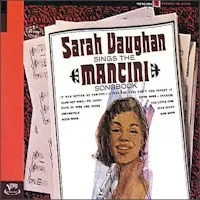Year: 2020
File: MP3@320K/s
Time: 58:55
Size: 136,3 MB
Art: Front
(3:42) 1. Joanne
(3:09) 2. Freight Train
(5:44) 3. Some Other Spring
(4:16) 4. Thin Man
(4:54) 5. Why
(4:12) 6. Don't Come Home A-Drinkin'
(5:58) 7. Woodstock
(4:47) 8. All the Good Girls Go to Hell
(4:26) 9. Home Again
(5:59) 10. At Seventeen
(4:31) 11. Dancing on My Own
(7:12) 12. Song to a Seagull - Live
Lisa Bassenge has called her new album "Mothers". It is a tribute to the mothers of popular music. To women who have created something unique in a creative process. "Both now and in the past, there are so many great works by women," says Bassenge. "It was important to me to emphasize that with my album and to shine the light on all these strong women."
At first glance, the composers Bassenge has chosen could hardly be more different - from hippie icon Joni Mitchell to Eurythmics singer Annie Lennox and pop phenomenon Billie Eilish. And yet they have much in common. "Many songs tell of a moment of self-empowerment for these women - and the success that followed. That's something that touched me very much, because women often don't have the confidence to do such things and think they need encouragement from outside," explains Bassenge. "When I started singing as a teenager, I also often heard 'women can't make music'. In general, we have made a lot of progress in recent years, but we still have a long way to go before women get the recognition they deserve."
Lisa Bassenge not only covers the twelve pieces, she makes them her own - with her changeable, soulful voice and the gentle jazz instrumentation. As on her previous album "Borrowed and Blue" she recorded "Mothers" with swedish pianist Jacob Karlzon and danish bass player Andreas Lang. https://herzogrecords.bandcamp.com/album/mothers
Personnel: Lisa Bassenge (vocals); Jacob Karlzon (piano); Andreas Lang (bass)
At first glance, the composers Bassenge has chosen could hardly be more different - from hippie icon Joni Mitchell to Eurythmics singer Annie Lennox and pop phenomenon Billie Eilish. And yet they have much in common. "Many songs tell of a moment of self-empowerment for these women - and the success that followed. That's something that touched me very much, because women often don't have the confidence to do such things and think they need encouragement from outside," explains Bassenge. "When I started singing as a teenager, I also often heard 'women can't make music'. In general, we have made a lot of progress in recent years, but we still have a long way to go before women get the recognition they deserve."
Lisa Bassenge not only covers the twelve pieces, she makes them her own - with her changeable, soulful voice and the gentle jazz instrumentation. As on her previous album "Borrowed and Blue" she recorded "Mothers" with swedish pianist Jacob Karlzon and danish bass player Andreas Lang. https://herzogrecords.bandcamp.com/album/mothers
Personnel: Lisa Bassenge (vocals); Jacob Karlzon (piano); Andreas Lang (bass)
Mothers




















